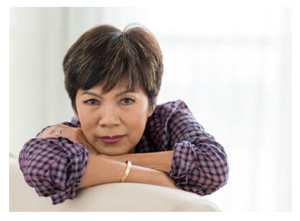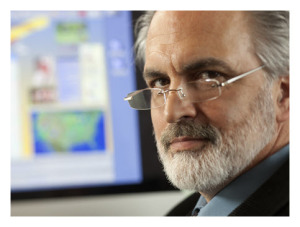 No doubt you’ve read the media accounts pitting Pope Francis against Donald Trump when it comes to Christian values. (You’d have to be living under a rock to have missed it.) The fracas has reminded me of something I’ve had caught in my craw for years: those who don’t practice what they preach.
No doubt you’ve read the media accounts pitting Pope Francis against Donald Trump when it comes to Christian values. (You’d have to be living under a rock to have missed it.) The fracas has reminded me of something I’ve had caught in my craw for years: those who don’t practice what they preach.
Not even close.
Specifically, what irks me: those who preach family values (with mistresses on the side); those who condemn others yet they have no idea who those “others” are at heart; those who don’t seem to grasp the wisdom of “there but for the grace of God…” — whether or not they believe in dieties of any sort.
Would that we could remember that we are all vulnerable. And yes, some more than others.
Questions, With or Without Answers
I have tagged a variety of posts on this site with what I term cultural values — columns and musings on everything from childcare to healthcare, and from the gender pay gap to women’s reproductive rights.
Sometimes my perspective is crystal clear. Sometimes I’m posing a series of questions. Sometimes I’m thinking “aloud” — here, on the virtual page — because this is a convenient mode of self-examination, and often a path to working things out.
In any of these scenarios, I’m pleased when readers jump in with their thoughts. I know I’m bound to learn something, and a diversity of views is always enlightening.
As for my run-on questions, I don’t pretend to be a paragon of virtue much less to have any answers. But I believe the questions are important. Questions are always important. I was raised in a family that encouraged asking questions, and I raised my sons in the same way — difficult though it was at times — in part because I believe in practicing what I preach.
And if I’m not, then something is in need of consideration and adjustment.
Values. Why Don’t We Talk About Them?
Speaking of my sons, open-mindedness was a core value in our home. Without it, we learn nothing from each other. Without it, we will have difficulty forming real, vital and caring communities. Without it, we will not push ourselves to pose the questions that lead to interesting and exciting lives.
This is what I believe. You may believe otherwise.
It occurs to me how little we speak of values early in our relationships. While this may not be true of everyone, I suspect that most of us talk about interests and dreams, and we look for commonalities in the lives we want to build together — the type of house, how many kids, spending our hard-won vacation dollars skiing in the mountains versus sunning on a beach.
But do we bring up politics? Do we assume those differences will “just work themselves out?” Don’t politics reveal a tremendous amount about underlying lived values? Don’t they also reflect our age, stage and life experience?
Now, I’m not saying that a conservative and a liberal can’t love one another. But I do wonder if they find themselves brushing all manner of issues under the rug. And isn’t that a problem?
So what of religious differences? Does that depend on their relative priority? Is it “just” a matter of tolerance?
I live in the Bible belt, and have for years. There’s little doubt that I’m a fish out of water here, though generally speaking, I’ve enjoyed this part of the country. That said, I struggle with what I see as the narrow-mindedness that surrounds me. Moreover, I don’t understand it. And some of my discomfort comes in the disconnect between what is said and what is done — in other words, an abundance of “preaching” and a paucity of “practice.”
Ah, Hypocrisy…
Yes, I know. Hypocrisy is visible on a small scale and a large one in every corner of our society — in our homes, our workplaces, our friendships, our relationships, our neighborhoods, our government — and our houses of worship.
And I place houses of worship last in that sequence intentionally. It ties back to the issue of values, both personal and cultural, and the contradictions I see constantly in those who are so bold as to instruct us in one set of beliefs (often adamently), yet live in blatant opposition to what they profess as important.
 As for why this is bothering me so much today, certainly the news (Trump, the Pope) is part of it. Some reading on the web as well. And in particular, a question in that reading that arose concerning the morality of people who label themselves as atheists. The implication? That they are not “good people” — not in the same way as those who sit in pews, prayer books in hand, or checkbooks at the ready for an annual donation.
As for why this is bothering me so much today, certainly the news (Trump, the Pope) is part of it. Some reading on the web as well. And in particular, a question in that reading that arose concerning the morality of people who label themselves as atheists. The implication? That they are not “good people” — not in the same way as those who sit in pews, prayer books in hand, or checkbooks at the ready for an annual donation.
Naturally, there are many who do live their belief systems to the best of their ability. I admire them. I admire them even more when their beliefs make room for a world in which other beliefs can peacefully coexist.
My Way or the Highway
That many believe in a “my way or the highway” approach to faith is obvious. We have only to glance for a fraction of a second at the events of the day on the world stage. I’m not a fan of dogma — not in gender roles, not in parenting — and definitely not regarding one (and only one) version of a higher power as absolute truth, and thus, the mantel of moral superiority.
What of respect for those whose higher power may be a variation with a different spelling? Or possibly this in lieu of gods of any sort: a small act of kindness to a stranger, a political protest maintained in social media, a food drive for the hungry, or the dictates of their own conscience in the here and now.
And as those who are prominent in the news — “leaders” — blow their respective horns and clash in their privileged rhetoric, even as their words and actions make little sense, even as I recognize that it is only human to live with a set of sparring contradictions, I grow weary of those who claim to act on values of love and caring for others, when what they really practice is more akin to bigotry, intolerance, ignorance and derision.
Or, simply put, effective indifference. And let’s not kid ourselves, indifference is effective indeed.
You May Also Enjoy
It seems you’re in the fray, as so many of us are, with the political bombardment and circus. It’s exhausting. My interest is unraveling. I’ve had so much of it this year…bad news, people not being what they appear, or had appeared to me in the past…it’s all I can do some days to hang onto that belief I had in human goodness. My work lately has been to pull myself back up, to remember that what I focus on will expand, to retreat into gardens and walks for the balm they are to my psyche and to remind myself to be a light where I can – rather than reflect what I’ve come to see.
I hear you, Barbara.
A couple of things I believe are that a) people act rationally within their own frames of reference, and b) people are, at heart, “good” (divine). I believe all people have a trace of divinity, which may or may not be covered with various layers of impurity from life experience. And I believe that all people act rationally from the product of that mix of divinity and impurity.
That certainly doesn’t mean that I like what they do, it just means that, no matter what they do, there is a context driving it, which is natural and valid for them. The result is that when I see people doing things that are quite at odds with my core values, my emotions are pitted against my principles and I have to put those emotions on hold (not always succeeding!), telling myself it’s not about me. Then, as another actor in the world with my own interests at stake, I have to decide what actions to take in response. As you say, D.A., sometimes it is very, very difficult.
It appears that, for some, church or religion has deteriorated to a social ritual, devoid of meaning. You see various degrees of cynicism and awareness and there may be an obvious partitioning between proclamations and actions. Some people appear well intentioned but don’t seem to have the conceptual ability to translate the abstract into the practical.
My impression is that for many of the more devout the driving force is fear – fear that they will suffer interminably if they don’t exhibit rigorous external motions. I happen to think that is a rather primitive (i.e. human) understanding of a divine force, but who am I to suggest otherwise?
I have come to see many truly good people who are very devout, although I wonder if they would be just as good a people without the formal religion. I tend to think that without the right pre-existing spark, all of the religion in the world would do little good.
Regarding marriage politics, I too wonder how people in disparate camps coexist. It certainly isn’t something we talked about in advance. We have been in different places in different times, but we ended up in similar spots. With regard to religion – unfortunately that is one of many subjects we don’t discuss in detail, but at least we approach the world with similar values, even if only by accident. Either of these could be deal-breakers, otherwise.
I find it very disturbing that a significant part of society is so fearful (with respect to this life and a hereafter) that they can be browbeaten by politicians who use religion as a weapon. In part this is understandable – there is brain research that shows that a primary difference between liberals and conservatives is that liberals value freedom and conservatives value safety. But in the absence of some independent thinking, this leaves them open to the manipulations of those who might have no qualms about claiming any manner of religious authority. That is the point that puts our democracy at stake, and where I start to say and do things (regarding religion).